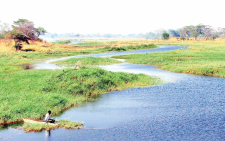Nairobi records four-fold rise in apartment rents in 10 years

A surge in demand pushed Kenya’s rental market to its tightest level in a decade last year, with the vacancy rate in purpose-built apartments rising 4.25-fold since 2012, new industry numbers have shown.
House Price Index statistics for the last quarter of 2022 also shows that house prices in Nairobi and its environs, had significantly shot up to three times in the last 10 years – which is faster than apartment prices. It attributed those increases to “limited density allowances in high-end villa suburbs” and deranged city planning.
Sakina Hassanali, Head of Development Consulting and Research at the firm said city planning only permits building of one or two houses per acre in a majority of the suburbs including but not limited to Muthaiga, Gigiri, Nyari, Kitisuru, Spring Valley, Loresho, Ridgeways, Runda, and Karen. “This leaves an enormous part of the city locked away for only a small fraction of its residents who can afford homes of an average price of Sh80 million,” she said. Hassanali further noted that house pricing in these areas had profited from house price appreciation due to strained supply caused by planning laws.
“While apartment prices have increased by 22 per cent on average in the last decade, houses have soared 40 per cent in the same time period, almost twice as much,” she observed in the report.
The average rental for a property, according to the realtor, has risen from Sh38,516 in December 2000 to Sh163,683 in December 2022, while the average rent for a four to a six-bedroom property is currently retailing at an average price range of Sh237,396. Similarly, the average rent for a one to three-bedroom property is in the region of Sh84,709, depending on the locality and property designs, and surrounding features.
Average value
Comparable increases were witnessed in home owning segment, where the average value for property has gone from Sh7.1 million in December 2000 to Sh34.1 million in December 2022 while the average value for a four to six- bedroom property is currently going for Sh38.3 million, compared to Sh12.3 million price cap for an average value of a one to three bedroom property.
In 2001, apartments took up 45.3 per cent of the market, semi-detached houses took up 20.5 per cent of the market and detached houses took up 34.2 per cent of the market, the statistics show. “In December 2021, however, apartments took up 59.8 per cent of the market, semi-detached houses took up 30.3 per cent of the market and detached houses took up 9.9 per cent of the market,”according to the survey.
The sluggish movement in rental prices across most markets, according to the report, was reflective of the rise in the cost of living in 2022 as well as global inflationary pressures that have worked to reduce real income.
Quarterly price
Indeed, property sale prices in three months to December last year recorded a 2.2 per cent quarterly price drop bringing the average annual property price gains to just 4.8 per cent over 2022.
Simply put, tough economic challenges seen in the last three years, and predominantly in 2022 which coincided with the electioneering period, led to unprecedented delays in the pipeline of new rentals, forcing a number of projects to stall.
The Russian-Ukraine war– related supply chain disruptions combined with shortages of raw materials have been cited as the major cause of the widespread construction delays in the country, which has led to a classic case of low demand and short supply driving up prices.











